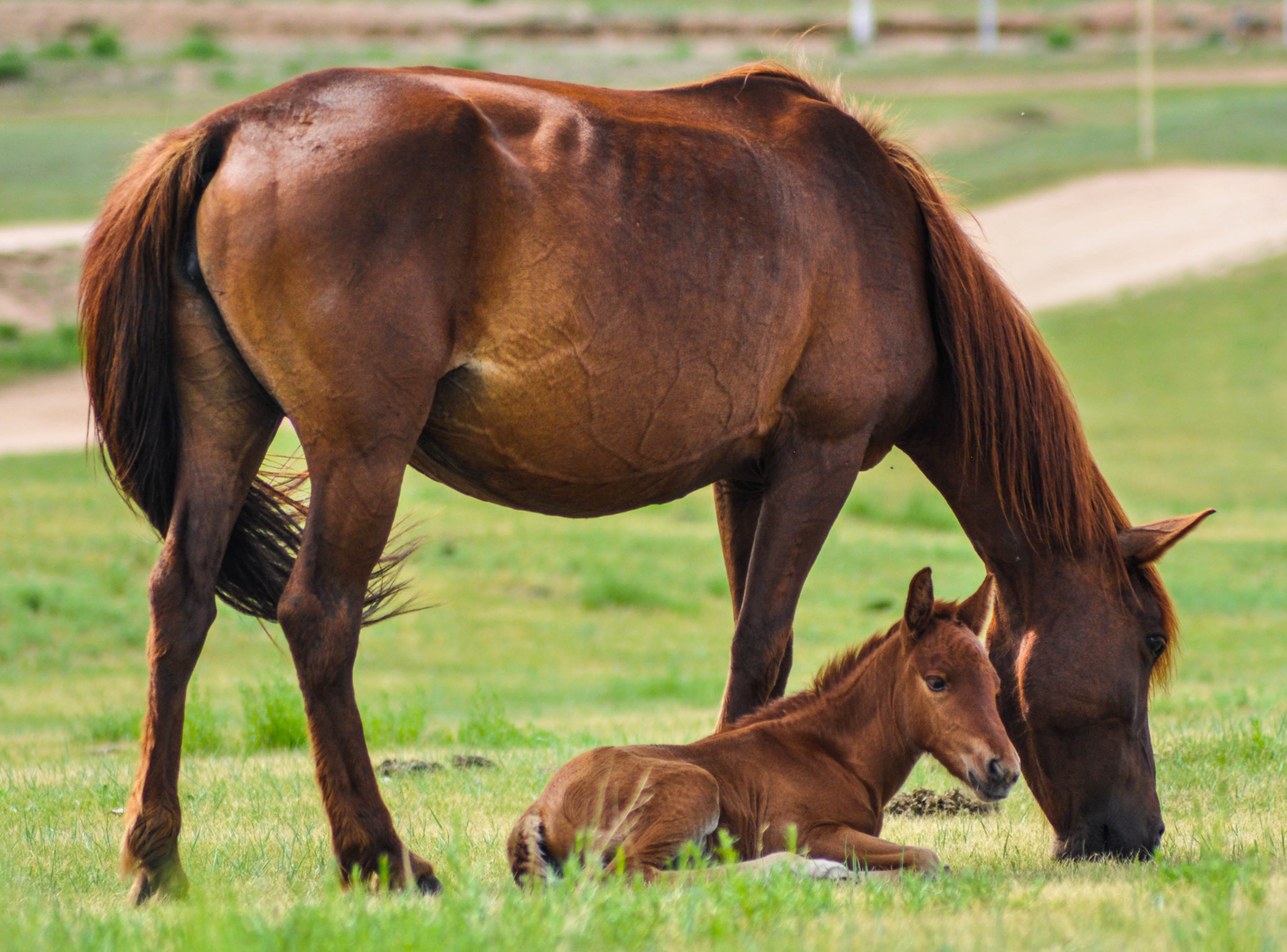Notification to Equine Owners about Fumonisin-Contaminated Feed
Department of Agriculture | Date Posted: Friday, May 30, 2025
Department of Agriculture | Date Posted: Friday, May 30, 2025

DOVER, DE (May 30, 2025) – The Office of the State Veterinarian is notifying the public of cases of neurologic disease in horses in the Kent County area. Many of the cases have been associated with feeding a corn-based feed. Anyone using feed purchased in April is encouraged to contact their supplier to see if they are aware of any related concerns.
Symptoms from equine cases were recorded by area veterinarians between April 22 and May 17. The Office of the State Veterinarian and a local equine veterinarian submitted three samples of feed fed to affected horses for toxin analysis. All samples returned with levels of a fungal toxin called fumonisin. The levels in the samples significantly exceeded five parts per million (ppm), the maximum level recommended by FDA.
Fumonisin is a toxin produced by mold (mycotoxin) that grows on corn. The amount of contamination can vary due to weather during harvest and harvest periods, improper storage and other factors. Dry periods followed by rainfall just before and during harvest can create optimal conditions for mold growth. Insect damage and high-moisture content (18-23%) in storage can increase levels of toxins. Proper storage and management of corn and other feed grains are vital preventative steps.
Fumonisin can harm various livestock animals depending on the levels of contamination and the amount ingested, with horses and rabbits being most sensitive. The toxin causes softening of the brain and subsequent neurologic signs including lethargy, head pressing, wobbly gait, tremoring, and circling, and progression to recumbency and death. The samples submitted by the Office State Veterinarian and the local equine veterinarian had levels ranging from 31 – 101 ppm where as safe, quality feed should not have Fumonisin levels exceeding one ppm.
Those caring for sensitive animals are reminded of these best practices when purchasing feed:
Animal owners who believe they may have purchased contaminated feed are instructed to dispose of the feed immediately and not to feed the product to their livestock or poultry. Owners with questions or concerns about feed should contact the supplier for more information. Further guidance on feeding should be sought from a veterinarian.
Animal health questions should be directed to the Poultry and Animal Health Section of the Delaware Department of Agriculture at 302-698-4500.
Resources:
Keep up to date by receiving a daily digest email, around noon, of current news release posts from state agencies on news.delaware.gov.
Here you can subscribe to future news updates.
Department of Agriculture | Date Posted: Friday, May 30, 2025

DOVER, DE (May 30, 2025) – The Office of the State Veterinarian is notifying the public of cases of neurologic disease in horses in the Kent County area. Many of the cases have been associated with feeding a corn-based feed. Anyone using feed purchased in April is encouraged to contact their supplier to see if they are aware of any related concerns.
Symptoms from equine cases were recorded by area veterinarians between April 22 and May 17. The Office of the State Veterinarian and a local equine veterinarian submitted three samples of feed fed to affected horses for toxin analysis. All samples returned with levels of a fungal toxin called fumonisin. The levels in the samples significantly exceeded five parts per million (ppm), the maximum level recommended by FDA.
Fumonisin is a toxin produced by mold (mycotoxin) that grows on corn. The amount of contamination can vary due to weather during harvest and harvest periods, improper storage and other factors. Dry periods followed by rainfall just before and during harvest can create optimal conditions for mold growth. Insect damage and high-moisture content (18-23%) in storage can increase levels of toxins. Proper storage and management of corn and other feed grains are vital preventative steps.
Fumonisin can harm various livestock animals depending on the levels of contamination and the amount ingested, with horses and rabbits being most sensitive. The toxin causes softening of the brain and subsequent neurologic signs including lethargy, head pressing, wobbly gait, tremoring, and circling, and progression to recumbency and death. The samples submitted by the Office State Veterinarian and the local equine veterinarian had levels ranging from 31 – 101 ppm where as safe, quality feed should not have Fumonisin levels exceeding one ppm.
Those caring for sensitive animals are reminded of these best practices when purchasing feed:
Animal owners who believe they may have purchased contaminated feed are instructed to dispose of the feed immediately and not to feed the product to their livestock or poultry. Owners with questions or concerns about feed should contact the supplier for more information. Further guidance on feeding should be sought from a veterinarian.
Animal health questions should be directed to the Poultry and Animal Health Section of the Delaware Department of Agriculture at 302-698-4500.
Resources:
Keep up to date by receiving a daily digest email, around noon, of current news release posts from state agencies on news.delaware.gov.
Here you can subscribe to future news updates.